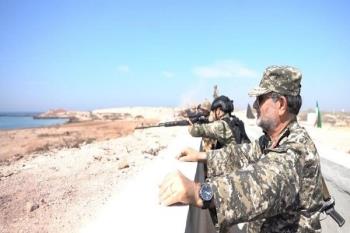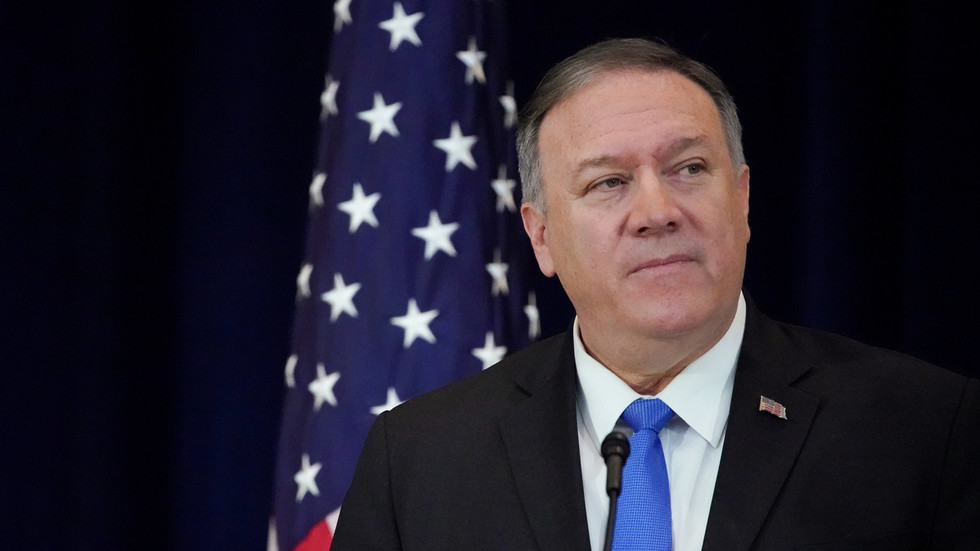Kazakhstan is one of the stops on US State Secretary Mike Pompeo's whirlwind trip shortly after the New Year, with hopes that Washington can make inroads with a government in the key region between Russia, China and Afghanistan.
Washington has chosen to start 2020 by bringing its already strained relations with Iran to a whole new level of confrontation, as it ordered the killing of one of Tehran’s top generals, Qassem Soleimani. The high-profile assassination is bound to make things difficult for the State Department.
And that’s not to mention that it is far from being the only problem Pompeo and his staff have on their hands. Yet, instead of seeking to revive stalled denuclearization talks with North Korea or soothing the ruffled feathers of European NATO allies, the secretary of state plans to visit several former Soviet republics: Belarus, Ukraine, Uzbekistan and Kazakhstan, in the vast Central Asian steppes.
Most Americans may be forgiven for "knowing" about Kazakhstan via English comedian Sasha Baron Cohen’s 2006 movie 'Borat,' which actually has nothing to do with the country and is sort of offensive to bring up there.
The Central Asian nation, independent since 1991, has signed treaties on cooperation with both the US and NATO, while maintaining cordial relations with Moscow and Beijing. So what awaits Pompeo in Nur-Sultan, formerly Astana, Kazakhstan's capital recently renamed in honor of its first president?
The level of interaction between Washington and Nur-Sultan was “stable but relatively weak,” Vladimir Batyuk, a senior fellow at the Russian Institute for the US and Canadian Studies, told RT. “Their common arrangements have been usually limited to some low-level meetings.”
Seeking a fallback position in Central Asia
America’s renewed interest to Kazakhstan might be a result of the recent developments in nearby Afghanistan, where the 18-year-long war is showing no sign of ending well for Washington.
President Donald Trump's promise to pull out of America's longest war was thwarted at the very beginning of his administration by hawkish establishment advisers. Later, he abruptly canceled peace talks with the Taliban militants when a peace deal seemed within reach.
Recent reports that US generals and officials had known for years that the war in Afghanistan was unwinnable may help nudge Washington into actually calling it quits, however.
That is not to say the US has given up on the dream of having a base in the region, though, and Kazakhstan may seem like a good prospect to some in Foggy Bottom.
“Now, they would need Central Asia as its base of operations,” Aleksey Pilko, director of the Eurasian Communications Center, told RT.
US withdrawal from Afghanistan is almost guaranteed to result in the resurgence of the Taliban. The hardline Islamist militants already control much of the country. Washington may seek to expand its influence in neighboring countries by bringing up potential security issues and counter-terrorism cooperation.
However, a withdrawal from Afghanistan is also likely to weaken the US position in the region, and make it that much more difficult to position itself as a security provider for Central Asian nations, Pilko believes.
Geopolitical crossroads
Kazakhstan is a major regional power and the biggest state in Central Asia, at one time contributing 60 percent of the regional GDP. It is also a major uranium exporter, and has significant oil and gas reserves. These facts alone could be enough for Washington to turn its eye to Nur-Sultan.
What might be equally important is that Kazakhstan is conveniently located between Washington's two major geopolitical adversaries – China and Russia – which makes it a very valuable piece in the geostrategic puzzle.
In fact, Washington has indeed become conspicuously interested in “strengthening bilateral relations” with Nur-Sultan after longstanding Kazakh President Nursultan Nazarbayev – a close ally and friend of Russia’s Vladimir Putin – stepped down to give way to a younger national leader.
“Kazakhstan is a key state in the region, so it is no wonder that the US state secretary pays a visit there,” Pilko explained. “The Kazakh leadership has changed… Now, the US sees a need to sound out the situation and talk to the former and the current presidents to find out what is happening and what the new leader’s policy will be.”
Pompeo has already given a warm welcome to the Kazakh Foreign Minister Mukhtar Tleuberdi in Washington in mid-December, and claimed on Twitter that the “strategic partnership” between the two nations “has never been stronger.”
The State Department then rushed to laud growing commercial ties between the US and Kazakhstan, as well as President Kassym-Jomart Tokayev’s “ambitious reform agenda”, adding that the “human rights crisis” in neighboring Chinese Xinjiang and “lasting peace” in Afghanistan were also discussed during the meeting.
It is on Tleuberdi’s invitation that Pompeo is now planning to arrive to Kazakhstan. Little is officially known about this supposed trip so far, however, with most news coming from Kazakh officials.
"The program will be eventful,” Kazakh Foreign Ministry spokesman Aybek Smadiyarov told journalists in early December. Other reports suggested that Pompeo will unveil nothing less than a new US strategy for Central Asia during the visit.
Washington might have good reasons to approach Kazakhstan. However, whether it has the means to achieve its goals is another matter entirely.
Futile efforts
Even if Pompeo plays the US security assistance card during his visit, it is unclear whether that will be enough to sway the local establishment’s opinions in favor of Washington’s plans for the region.
Kazakhstan is already deeply integrated with Russia and several other former Soviet Republics, both in economic and military fields. The nation is a member of the Collective Security Treaty Organization (CSTO) – an inter-governmental military alliance which also includes Russia, Armenia, Belarus and two of Kazakhstan’s Central Asian neighbors, Kyrgyzstan and Tajikistan. The bloc is primarily tasked with fending off any military aggression against its members, as well as fighting terrorism.
Kazakhstan is also a member of the Eurasian Economic Union (EAEU), an economic integration body. The EAEU is roughly similar to the EU’s Common Market in that it allows free movement of goods, services and people and sets out common policies in various fields of economy ranging from transport, industry, energy and agriculture to customs and investment. In addition to Russia and Kazakhstan, it also includes Belarus, Armenia and Kyrgyzstan.
It is also worth noting that China and Russia - not the US - are Kazakhstan’s biggest trading partners. Almost 40 percent of Kazakhstan’s imports come from Russia, with an additional 16 percent arriving from China. US goods, by comparison, amount to slightly more than four percent. China is also the second most important Kazakh export market, while Russia is the fourth one.
However meticulously Pompeo plans to study all the peculiarities of Kazakh politics during his upcoming visit, Tokayev has already quite openly said that he would follow the steps of his predecessor in international relations, which most likely means continued close cooperation with both Russia and China.
The biggest obstacle to Pompeo’s potential diplomatic success might, however, lie not in Nur-Sultan but in Washington itself, Batyuk believes. President Trump largely focuses on geo-economics in his foreign policy, locking horns with adversaries and allies alike in his attempts to win extra trade preferences for the US.
“It is economics that is important for Trump. In this regard, Kazakhstan and Central Asia in general hardly have any place in his worldview at all. When the national leader does not exactly know what he wants from the region it is very difficult to develop any strategy here,” the analyst said.
Source: Russia Today



























